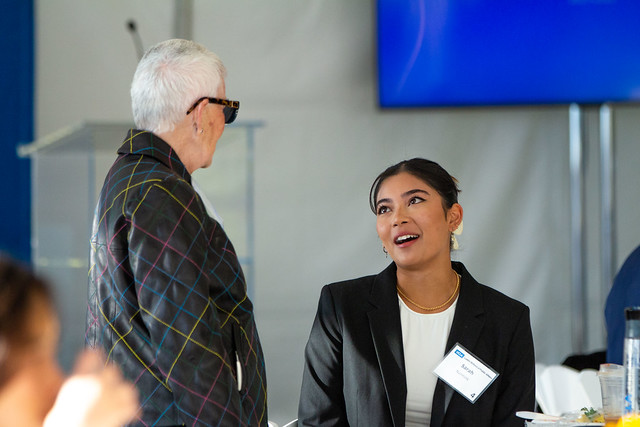By Mary Braswell
A new partnership between UCLA and a top European research university offers urban planning students an opportunity to earn two distinct master’s degrees in two years while studying in the global cities of Los Angeles and Paris.
Beginning in the fall of 2021, the highly regarded urban planning programs at the UCLA Luskin School of Public Affairs and France’s Sciences Po will join forces to offer a double master’s focusing on global and comparative planning and governance.
Students accepted into the program will be immersed in two thriving urban laboratories where perspectives on managing cities are quite distinct.
“The approach to urban governance in France and across Europe is very different from the American approach,” said Professor Chris Tilly, chair of UCLA Luskin Urban Planning. “This double master’s is a unique opportunity to learn how things are done in different cultures and to bring that knowledge to a range of global urban environments.”
‘There could not be a better two-city laboratory for learning how to become an urbanist today.’ — Professor Michael Storper
Students will spend the first year in Los Angeles, where UCLA Luskin offers rigorous training in urban planning, development and design with a strong emphasis on social, environmental and racial justice.
Year 2 will be spent at the Paris campus of Sciences Po’s Urban School, which takes a deep comparative and critical approach to public administration and the social transformation of cities. English is the language of instruction at the Urban School, which attracts students from across the globe.
Upon completion of the program, students will receive two degrees: a Master of Urban and Regional Planning from UCLA Luskin and a Master of Governing the Large Metropolis from the Urban School.
“By creating this dual degree, we get the best of both worlds,” said Professor Michael Storper, who holds appointments at both UCLA Luskin and Sciences Po. “Paris and Los Angeles are both world cities, but they couldn’t be more different in lifestyle and layout.
“Paris is historical, dense, public-transit oriented. And yet, the cities share many of the same challenges for planners, such as economic development, infrastructure, gentrification and housing, diversity and segregation, public space and climate change,” said Storper, a French-American citizen and resident of both cities.
The double master’s program is geared toward students seeking to work internationally or to bring a global perspective to urban planning in their home countries. And the opportunity to study abroad and build a network of friends and colleagues from around the world will be particularly welcome after travel restrictions brought on by the COVID-19 pandemic are lifted.
What sets this program apart from other international exchange programs is that it grants two degrees in urban planning, accredited in the United States and Europe, in the time normally needed to earn just one.
Across the University of California system, only one other similar international partnership exists: a double executive MBA program offered by the UCLA Anderson School of Management and the National University of Singapore.
The alliance between UCLA Luskin Urban Planning and the Urban School dates back to 2016, with the launch of a quarter-long student exchange program. To build on that relationship, a team from UCLA Luskin, including Storper, Associate Dean Anastasia Loukaitou-Sideris and past Urban Planning Chair Vinit Mukhija, advocated for the double master’s program, which required approval from UCLA and the UC Office of the President.
By design, the program will be small and selective. The roughly 15 students accepted into each year’s cohort will complete coursework and internships integrating theory and scholarship with real professional experiences, preparing them for work in the public, private and nonprofit sectors in any region of the world.
Applications to join the program in fall of 2021 are due on January 31. More information is available on the UCLA Luskin website.
“This program is a natural fit of two great universities and two great cities that are complementary in their differences,” Storper said. “There could not be a better two-city laboratory for learning how to become an urbanist today.”


